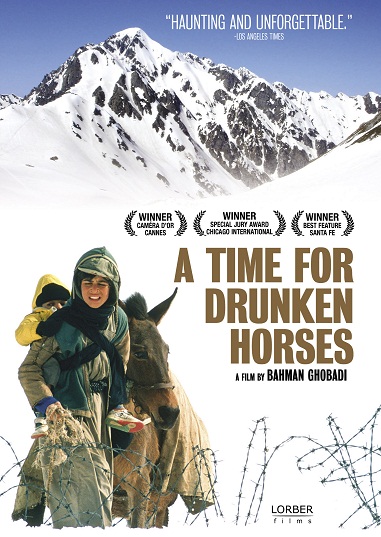By Chitra Kalyani
Springtime wafts in heady with perfume and love, but this year belies a strong hint of Jasmine. Geneina Theater, nestled in a slope at the Azhar Park, prepared for a concert as the revolution that swept across the region is still brewing.
Mawred El-Thaqafy’s Spring Festival opened on Friday with an overtly political theme of “Music, Freedom and Social Justice.” Four Arab countries — Egypt, Morocco, Lebanon and Tunisia — will be represented at this year’s fest.
Salma Said, Mawred press officer, said that while music may not be a catalyst for revolution, it has served as an important means of political expression. Many of the Egyptian musicians featured that Friday had played at Tahrir, and the entrance to the concert was free, compliments of the revolution.
Between the musical acts at Geneina, a projector displayed footage from Tahrir and videos that alternately satirize the regime and celebrate the revolution. The evening began with a stark reminder of the region’s ongoing struggle, and the packed theater fell silent as Said reported to the audience that 20 had died in Syria; the number rose to over 75 later that evening.
Musicians have now rewritten their own as well as others’ songs with lyrics lent by revolution slogans. Taxi band opened the evening, welcoming new Egypt with their song “Ole Ole.” Former lyrics “Open your heart, to the world” were now reworded to “Open your heart to the revolution.” The mood was one of buoyancy; a great weight has been lifted from the heart, and political lyrics floated easy on carefree music.
In one song, Taxi guitarist/vocalist Mohamed “Mado” Abdel-Aal rephrased the national anthem, and in another, he made an anthem of the popular number “Ana Masry.”
“I am crazy to think, Mubarak will one day be replaced,” go the lyrics of “Ana Magnoon” (I’m Crazy) written about five months before the revolution. It was for this song, as Mado tells the audience, that band members had fled when security harassed them last year.
“Now we’re the free ones, and they..,” and here he signaled hands cuffed. The following song “Sign Tora” (Tora Prison) too conveyed as much. “Come on, Hosni, and the ministry to Qanater prison,” sang the band “Come you, and Gamal, and Alaa, for that is where the robbers are.”
“We can now say anything we want without fear, without worry,” Mado told Daily News Egypt. “Early we couldn’t sing about political stuff, now we can.”
Mariam and Abou too found their voice at Tahrir Square. One song was inspired by a sign at Tahrir protest that said “Mabaetsh akhaiff, baeit masry.” (I’m not afraid anymore, I’m Egyptian). “It was a small sign, on a small piece of paper,” said vocalist Mariam Ali, but it inspired everyone that saw it, “It got you in the gut.” In another song, the duo reworks the ‘la la la’ from “Those Were the Days” to say “No no no, Hosny, we’re not afraid.”
Lyrics of “El Mundass we Agenda” (Infiltrator and Agenda) pour forth sarcasm as they recall the rumors of the revolution. “Between you and I,” it starts, and then goes on to number the conspiracy theories: American, Irani, Israeli and terrorist agendas.
Revolt still throbbed in the lyrics of “Masr Lena” (Egypt is Ours), that juxtaposed the much-quoted words of Qaddafi “zenga zenga, hara hara” (alley alley, region region) with “thawra thawra, kullu makan” (revolution, everywhere!).
In a departure from the theme of revolution, the duo sang an ode to “Scheherazade,” the heroine of “One Thousand and One Nights,” which too spoke of overcoming oppression and tyranny.
Ramy Essam’s popular revolution song “Irhal” (Leave) was not featured in his set list. Yet, audiences were familiar with his other numbers and sang along to the sarcasm of “Taati Taati” (Bow) asking Egyptians to “bow your head, we’re in a democratic country.”
Essam shot to immediate fame during the revolution with the hypnotic, marching relentlessness of “Irhal,” a song made purely of anti-Mubarak slogans. He suffered injuries during the historical 18 days and was later arrested and tortured. As promised then, he continues to sing.
In “El-Gahsh wal-Homar” (The Foal and the Donkey), Essam gave music to an Ahmed Fouad Negm poem about an ass speaking to his father telling him his time is up, a reference to Hosni Mubarak and his son Gamal.
Yet another song that borrowed from revolution slogans was “El Geish El-Arabi fayn?” (Where’s the Arab Army?) where people wondered about the sedentary role of the military while people without uniforms fight wars across the region.
The dozen-member band Eskendrella took a long time to set up. Their opening song called for new beginnings, to “bring a new page tomorrow, and put Egypt in a new sentence.” The music matched the lyrics perfectly in their nationalistic import, ouds strumming in a strong regular march.
Late into the night, the audience still packed Geneina to the brim, cheering on, evoking the nights of Tahrir.
As Mariam Ali told Daily News Egypt, “There was a time when Egyptians took pride in their country. It got slowly sanded away.” The 18 days in Tahrir restored that pride, and the night at Geneina sought to remind one of it. The Spring Festival was calling for another love, aptly articulated in the words in one video installation: “Tahrir Square soul… come back.”
Next up for the Spring Festival nights is Tunisian talent Abir Nasraoui on April 29. Tickets are LE 10, excluding Azhar park entrance.

Mado from Taxi band.

Ramy Essam: The voice of the revolution.

Eskendrealla.


